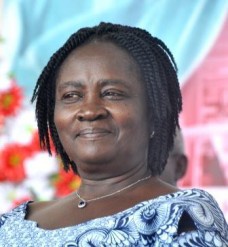The Minister of Education Prof Naana Jane Opoku-Agyemang on Tuesday announced that the contracts for the construction of the first batch of 50 community day Senior High Schools (SHSs) in 2014 have been signed.
She however failed to disclose the total cost of the project and the companies that would execute it.
The school project lacks clarity and transparency with various sums being quoted as the contract sum.
When Professor Opoku-Agyeman inspected a proposed site of one of the schools in Ashaiman, she put the cost of the project at about GH¢11 million, but her deputy, Samuel Okudzeto Ablakwa told an Accra-based Peace FM that the cost of construction of each school would range from GH¢5million to GH¢6million.
President John Dramani Mahama on March 2014 cut sod for work to begin on the first batch of 50 new community day Senior High Schools at Nyanoa, near Adeiso in the Upper West Akyem District of the Eastern Region.
The construction of the school, which is being undertaken by Consar, is still at the foundation level when DAILY GUIDE visited the site recently.
The 50 schools are part of a total of 200 new community day SHSs, which were promised by the president to be built across the nation.
Prof Opoku-Agyemang, who was speaking at the meet-the-press encounter in Accra yesterday, said the new schools would help Government meet the objective of expanding and improving access to secondary education in the country.
She said the project was being funded by the government and Ghana Education Trust Fund (GETFund).
Prof Opoku-Agyemang said another 23 new senior high schools, which are expected to enroll about 15,000 students upon completion would be supported by the World Bank.
She said as part of the programme, the ministry would also rehabilitate existing structures and facilities such as science and computer laboratories and libraries in 50 SHSs to increase enrolment.
Prof Opoku-Agyemang said the Ministry of Education provided capitation grant amounting to GH¢24,472,840 for 5,751,198 pupils in public basic schools for the 2012/13 academic year, adding that the ministry also subsidized the registration of BECE candidates to the tune of GH¢9,031,238.
Free SHS
Prof Opoku-Agyemang noted that the ministry would progressively implement the free Senior High School education policy.
Access continues to be a major barrier at the SHS level, and the existing SHS schools have the capacity to absorb only 60 percent of the students, who qualify from Junior High Schools (JHS), she said.
“As a result of the high demand for SHS education, some existing schools have been compelled to admit much higher number of students than they were designed to accommodate. This has led to circumstances in which there are some schools with as many as 300 students and over. This is significantly higher than the prescribed average of 1,200-1,500,” the Minister said.
In view of that, Prof Opoku-Agyemang said the ministry, following consultations with stakeholders, had prepared a report on the roadmap for progressive introduction of the free SHS education, which would be presented to cabinet for approval before its implementation.
She said, “Under the guidance of the proposed roadmap, we anticipate that fees for day students will be abolished at an estimated cost of GH¢71 million in the year of implementation. Other reliefs in respect of boarding students will be announced when the roadmap is finalized.”
Award for schools
Prof Opoku-Agyemang said the Ministry had decided to award outstanding schools as part of its annual Best Teacher Awards.
The new award category, according to the Minister, would not only recognize academic performance but take into consideration variables such as the school’s environment, sanitation and staff.
“Our proposal now is to expand the Best Teacher Award programme to include awards for best schools. We will look at variables to include school environment, sanitation, teacher attendance, relation among the community, heads, teachers, non-teaching staff, students and of course the academic output also,” she said.
Regional News of Thursday, 5 June 2014
Source: Daily Guide
Minister fails to give cost of SHS projects

Entertainment











